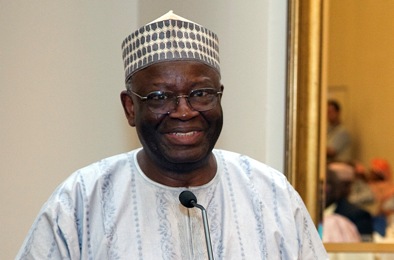African Union supports Gambari’s appointment as mediator for peace in Darfur
July 21, 2011 (ADDIS ABABA) — The Peace and Security Council of the African Union (AUPSC), this week expressed its support to the appointment of the head of the hybrid peacekeeping operation (UNAMID), Ibrahim Gambari, as joint chief mediator for peace in Darfur to replace Djibril Bassole.

The Council also discussed who and how to replace the former Joint Chief Mediator, Djiribil Bassolé who has been appointed as foreign minister in his country Burkina Faso. Further, it discussed and reiterated its support for the controversial Darfur Political Process (DPP) recommended by the head of the African Union Panel for Sudan, Thabo Mbeki.
The UNAMID chief is expected to brief the United Nation Security Council on 22 July on the activities of the largest peacekeeping mission which will expire on 31 July before renewing it for another year. Gambari who co-signed the Doha peace agreement between Sudanese government and Liberation and Justice Movement (LJM) as special representative for the African Union and the United Nations will also brief the 15 member body on the peace process.
The AUPSC body “welcomes the recent appointment of Prof. Ibrahim Gambari as the Joint Chief Mediator ad interim, and looks forward to the early formalization of this appointment,” said a statement released by the PSC of the African Union.
Gambari advocated in the past that the hybrid peacekeeping mission should be also tasked with the peace process stressing that there is no peace to keep but a peace to make in Darfur.
In a speech he delivered during the AUSPC meeting, Gambari said there is a need to broaden the peace process in order to include the other rebel groups, particularly the two factions of the Sudan Liberation Movement (SLM) led by Abdel Wahid Al-Nur and Minni Minnawi.
Gambari also urged the African peace body to press Khartoum to lift the emergency law in Darfur in order to create a conducive environment for the political process and for the dialogue among Darfuris that Mbeki’s panel wants to launch in Darfur.
The AU’s Security and Peace Council reiterated its support to the Darfur based political process and called on the UN Security Council to back Mbeki’s plan which intends to promote dialogue among tribal leaders, internally displaced persons and refugees and civil society groups as well as the regional elected institutions dominated by the members of the ruling National Congress Party.
The UN Security Council remains very divided over the DPP as it is seen inefficient due to the lack of security and freedoms besides the repeated violations of human rights in the restive region. The process also does not include the rebel groups and seen as based on a different logic as it does not associate the armed groups.
Also, while the African Union wants more pressures on the rebel groups to join the peace process, the UN Security Council is reluctant on how to convince them to engage in peace negotiations with Khartoum. The United States in the past showed opposition to impose sanctions on rebel movements who are not part of the Doha peace process.
(ST)
